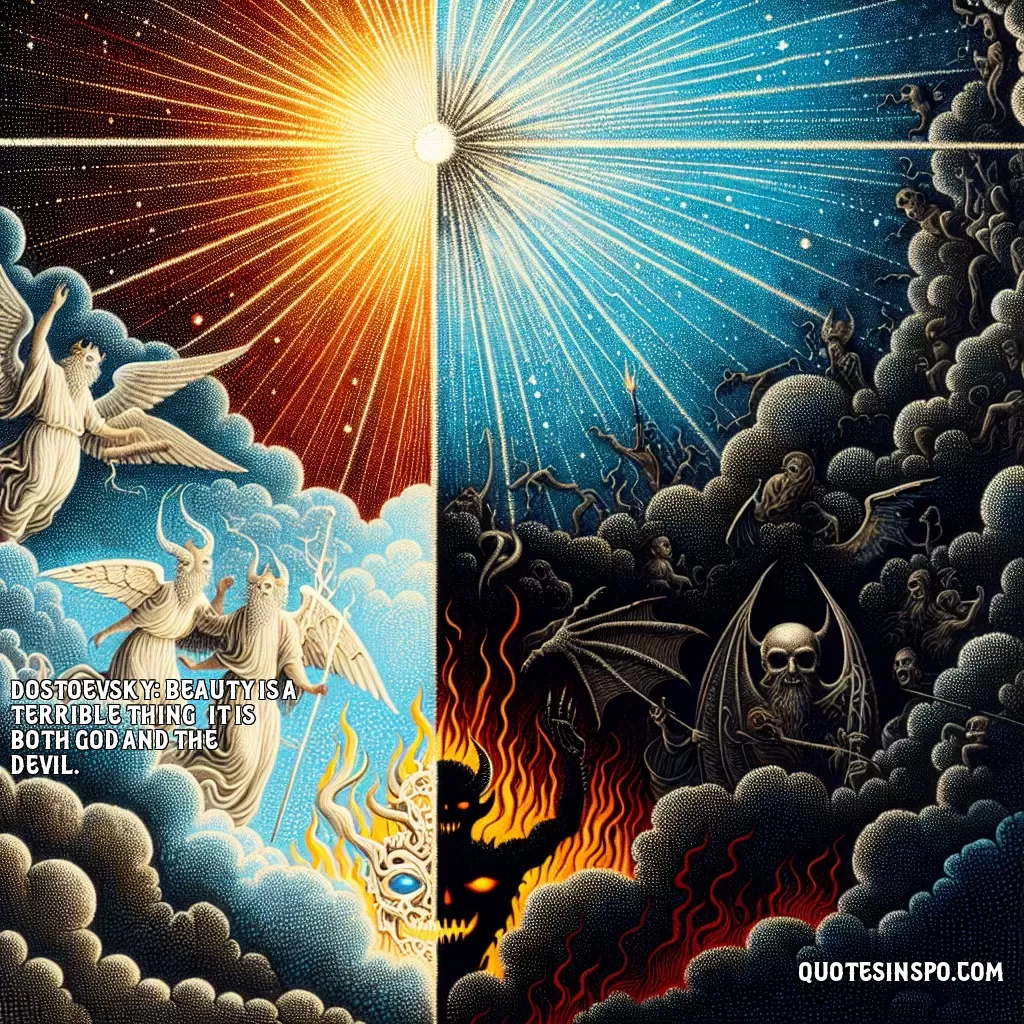
Dostoevsky: Beauty is a terrible thing it is both God and the devil.

Dostoevsky: Beauty is a terrible thing it is both God and the devil.
Fyodor Dostoevsky's quote, "Beauty is a terrible thing, it is both God and the devil," encapsulates the complex duality inherent in the concept of beauty. This statement suggests that beauty possesses paradoxical qualities; it can inspire both profound goodness and overwhelming destructiveness. By referring to beauty as "a terrible thing," Dostoevsky emphasizes its power and the intensity of its impact on human consciousness and experience. When beauty is equated with "God," it signifies the divine, uplifting, and inspirational aspects of beauty. It is that which inspires awe, evokes sublime emotions, and elevates the human soul towards higher ideals. Beauty in this sense can be a source of spiritual enlightenment and moral elevation, promoting compassion, love, and an appreciation for the world and its wonders. This divine aspect of beauty can deepen our understanding of life’s mysteries, inspire creation, and encourage moral and ethical behavior. Conversely, when beauty is likened to "the devil," it represents the more sinister and destructive potential of beauty. It can ensnare and seduce, leading to obsession, jealousy, vanity, and even cruelty. This aspect of beauty may incite desires that fracture moral integrity, foster competition, and provoke destructive behaviors. It hints at an allure that can lead individuals away from what is ethical and good, drawing them towards self-interest and moral decay. Thus, Dostoevsky's quote captures the inherent duality of beauty, a concept that can simultaneously elevate and corrupt, acting as a force of both creation and destruction in the human experience. Beauty's capacity to embody both divine and demonic qualities reflects the broader complexities and contradictions within human nature and existence itself.
Quote By: Fyodor Dostoevsky
Fyodor Dostoevsky (1821–1881) was a renowned Russian novelist and philosopher, best known for his profound exploration of human psychology and morality. His major works, including "Crime and Punishment," "The Brothers Karamazov," and "The Idiot," delve deep into themes of guilt, faith, and the human condition, reflecting both his personal struggles and the turbulent socio-political landscape of 19th-century Russia. Dostoevsky's legacy endures as one of the greatest literary figures, influencing countless writers and thinkers worldwide.
Bio added on: 2025-02-18 18:49:19